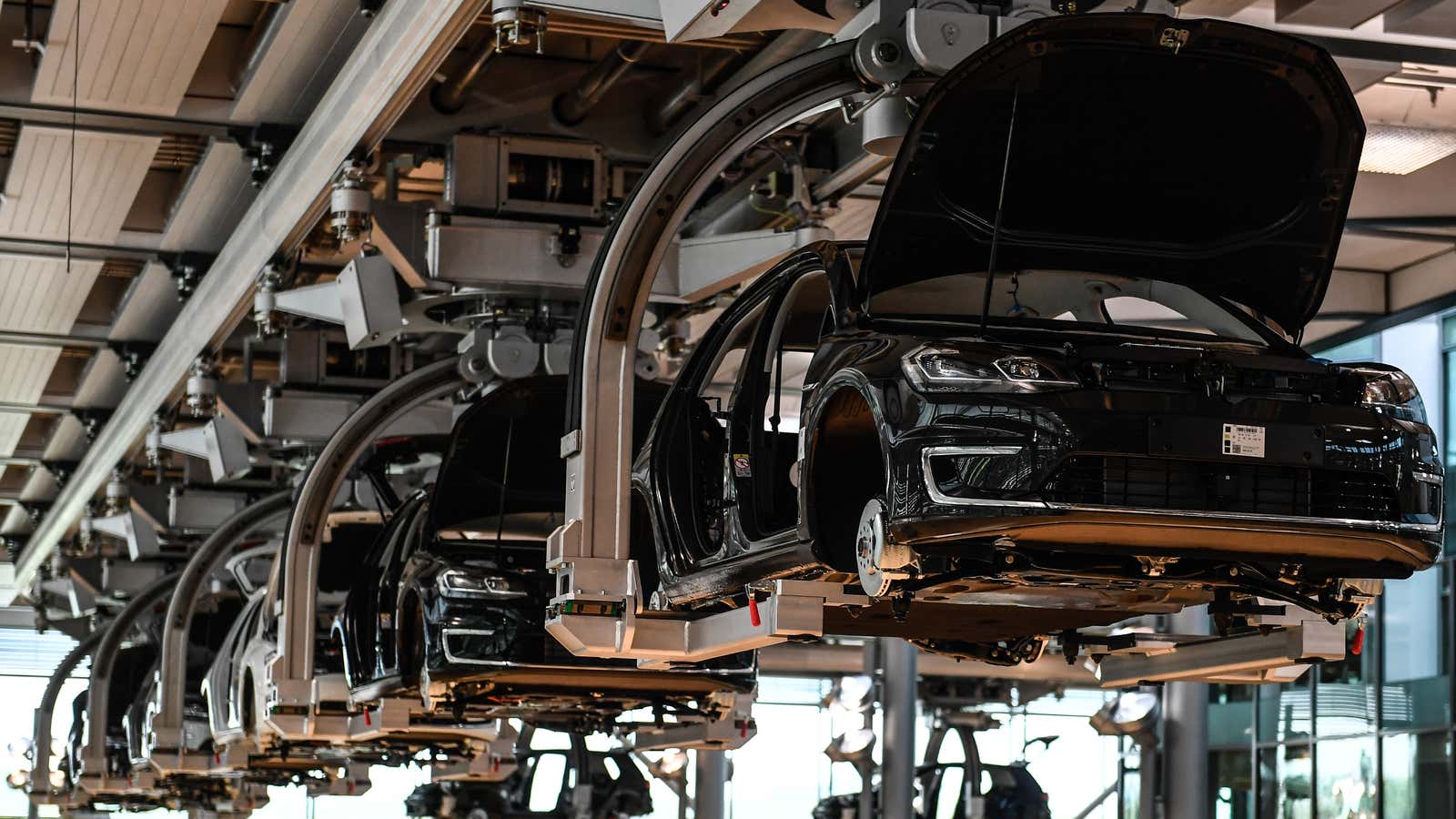The internal combustion engine has had a long run, but its days have been numbered for a while now. A recent survey from Dutch bank ING has pegged the year 2035 as the point when battery-powered cars will slay the gasoline engine for good.
Sales of electric vehicles have been slowly growing in Europe and the US, and are surging in China—in 2016, China registered as many as 352,000 new e-cars, compared to only 159,000 registered in the US during the same time period.
All over the world, though, buyers have been put off of electric cars by three distinct problems: limited range on a single battery charge, underdeveloped charging infrastructure, and the higher cost of electric models. Government incentives have persuaded many buyers to go electric, but when these incentives are removed—as seen recently with Tesla’s April sales slump in Hong Kong—then it currently makes more sense for most people to buy a petrol car.
That’s all going to change fast, according to ING’s report. From 2020 onwards, ING analysts say, more efficient next-generation battery technology will put an end to range anxiety. Battery-pack costs will drop rapidly, closing the price gap between electric and internal combustion engines completely by 2028. When it comes to total cost of ownership (buying, maintaining, powering, etc.) they say that by 2024, a Volkswagen e-Golf should save its owner a total of €2.500 ($2,800) a year compared to a comparable petrol car.
Even though price parity will be achieved by 2028, ING predicts that it will take until 2035 until everyone who buys a new car will buy electric. This they say will be brought about by the cost of EV ownership dipping below that of traditional cars, a big range of electric models, and the global phase-out of the internal combustion engine all coming together to make gas-powered cars a thing of the past
Europe’s automakers are already in a race to launch electric or hybrid options—Volvo recently announced it would only make electric or hybrid vehicles from 2019 onwards. But their biggest challenge won’t be transitioning from traditional to electric powertrains: ING predicts that the biggest threat to the industry will be access to raw materials like lithium and graphite for battery production, as well as the need to expand production facilities.
EU automakers currently own 25% of the global internal combustion engine market, but a paltry 3% of current or planned battery production is in Europe. European carmakers are late to the game when it comes to innovating in the EV field, as they’re still enjoying a lucrative traditional car market, and are baulking at retooling factories to produce electric cars that right now they can’t sell in any great numbers.
Meanwhile China is going all out building battery factories, and the US, thanks mainly to Tesla, is making great strides. ING predicts that electric cars from China and the US could take a serious bite out of the European car market in just a few decades.
